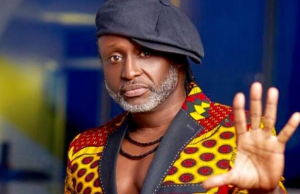Written By Adjei Dickens Ofori Asare
One interesting aspect of election process is the balloting for positions and how candidates and their supporters interpret the meaning of the positions they obtain. For the 2024 Ghanaian presidential election, 39 candidates initially picked up nomination forms, comprising 12 political parties and 27 independent candidates. However, after the nomination deadline on September 13, 2024, only 24 candidates successfully filed their papers with the Electoral Commission. The Electoral Commission released the final list of candidates on September 20, 2024, and 13 made the cut, while 11 were disqualified due to unfulfilled requirements or discrepancies on their forms.
In a democracy, voters often rely on various information shortcuts to overcome their lack of information in elections (Popkin, 1991). Also, research by Arthur Lupia (1994) suggests that voters rely on mental shortcuts, or “cues,” to make informed decisions. In Ghana’s 2024 election, the balloting order can serve as a cue. Few might be unaware that Vice President Bawumia aims to break the alternating eight-year cycle between Ghana’s National Democratic Congress and New Patriotic Party.
I believe it would have been very interesting for Dr. Bawumia’s campaign team, especially those musicians in his campaign camp, if it had happened that Bawumia persuasively positioned himself at number eight to align with the “agenda break the 8.” Without an iota of doubt, securing the number one spot in the 2024 election order would give Bawumia a psychological advantage. I vividly recall my Junior High School days, when, after Basic Education Certificate Examination (BECE) registration, I was assigned index number one. I felt terrified and worried, but my loving mother encouraged me, saying, “Number one stands for victory; don’t be afraid.” She motivated me to excel, and I carried that mindset forward.
Understanding the tenets of the primacy effect, a political analyst might say that H.E. Bawumia, listed first on the ballot paper, would receive more votes (Faas & Schoen, 2015) due to increased visibility, voter recognition, and psychological biases. The reason is that primacy effect theorists posit that voters perceive the first candidate as more competent or experienced.
However, a staunch member of the National Democratic Congress might caution Vice President Bawumia that gaining the number one spot on the ballot paper does not guarantee victory in the 2024 general election. This is similar to how being the plaintiff or first to report a case at the police station does not automatically mean you will win the case. After serving as President from 2012 to 2017, John Mahama believes he needs one more term to fulfill his vision for Ghana. However, he did not secure the top spot (number #1) on the ballot paper. If that had happened, the NDC’s campaign agenda would have been “one more chance to make changes – we dey #1 on the ballot paper.” Although some political pundits claim Mahama’s eighth-position placement on the ballot may hinder his momentum in this 2024 election, this assertion is questionable. Ho and Imai (2008) reported in their work on California statewide elections that, in general elections, ballot order only seems to impact candidates from minor parties. Candidates from major parties appear unaffected.
Now, the ultimate decision lies with the good people of Ghana, since they will be choosing a leader who knows the way, shows the way and goes the way. On December 7, the French shrug “que sera sera.”- whatever will be will be, will ring true.
Written By Adjei Dickens Ofori Asare
(Head of Communication, Center for Public Discourse Analysis & MIL Advocate)














